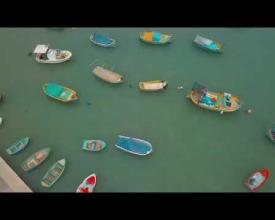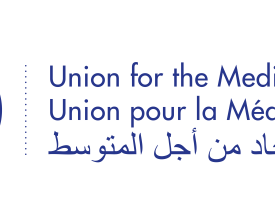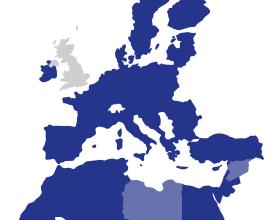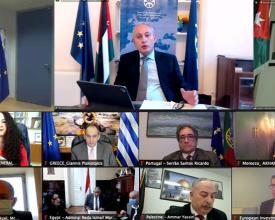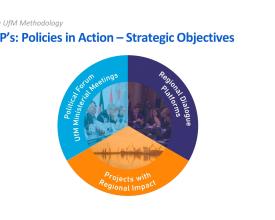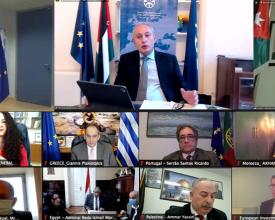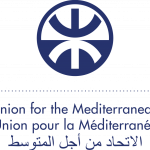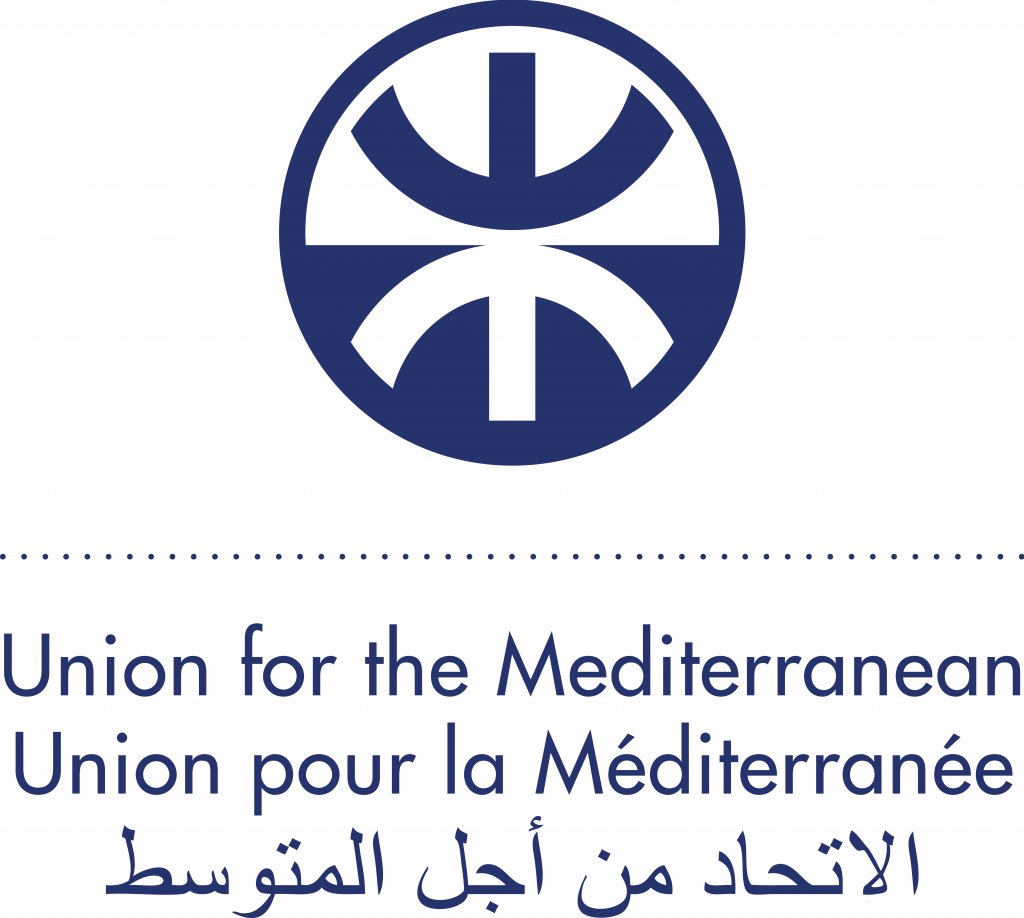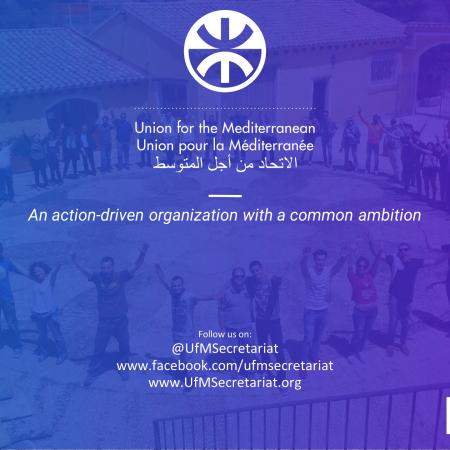
Sustainable Blue Economy in the Mediterranean region
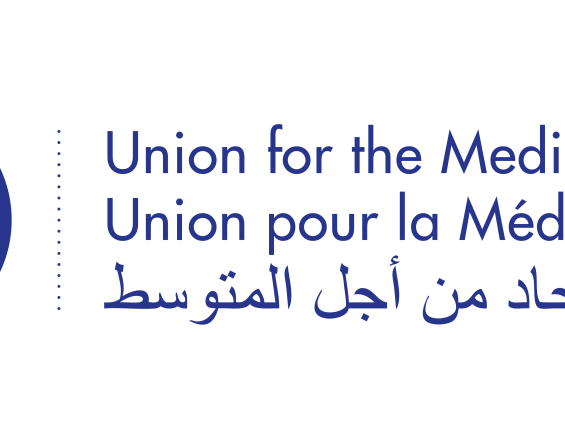
The Union for the Mediterranean (UfM) is an intergovernmental organization of 42 countries, bringing together all countries of the European Union and 15 countries of the Southern and Eastern Mediterranean.It is a unique framework for cooperation and dialogue in the Mediterranean region with a clear mandate to foster regional cooperation and integration with a view to improve stability and social well-being.The objective is to foster regional dialogue and reinforce action around the shared priority areas of blue economy identified through the UfM Ministerial Declarations on Sustainable Blue Economy adopted by the 42,together with the governance structure set up to manage them and the stable mechanisms for stakeholders ‘involvement (through the Med Blue Economy Platform; regular Stakeholders Conferences and Consultations; etc.)
The 2nd UfM Ministerial Declaration on Sustainable Blue Economy was adopted on the 2nd of February 2021;the 1st was approved in November 2015.
Context
Challenges addressed
- The impacts of climate change on resources and ecosystems;
- Marine and atmospheric pollution (from ships and ports, source-to-sea, marine litter including micro and macro plastics, etc.);
- Population density in coastal areas and pressure from seasonal flows;
- Unsustainable patterns of economic development (resource-intensive production processes, consumption intensive lifestyles);
- Overall fostering a sustainable BE, related relevant sectors and cross-cutting enablers (sustainable marine and coastal tourism; promotion of marine research and innovation; blue skills, careers and employment ; MRE; maritime safety and security, etc.);
- Integration and coordination among sectors and activities consistent with a SBE in the Med (i.e. limited space as a challenge,etc.);
- Continuing to foster governance and dialogue between UfM member countries for the future of sea basin strategies in the Mediterranean region;
- Unsustainable fishing practices and food security focusing on fostering wild fish stocks and sustainable aquaculture
Location
Process
Summary of the process
The building blocks are part of the same UfM Blue Economy system, so they interact and are actually complementary to each other.
Furthermore, reaching the expected impacts requires joint, concerted and coordinated actions at cross-border level with a very wide geographical coverage of a broad range of stakeholders, ranging from international organisations from the UN system, (UNEP-MAP, FAO, UNIDO, ) regional organisations (CIHEAM,), NGO’s, private sector, IFI’s, to different levels of national administrations –both at policy and implementation level.
Coordination with other connected and relevant existing initiatives (e.g. WestMED; BLUEMED; EUSAIR; InterregMed communities including the Blue Growth and the Tourism ones; ENI CBC projects; PANORAMED; Plastic Busters Initiative; etc ) is ensured and geared precisely to this overall objective, as is the strengthened engagement with financial institutions and bilateral and multilateral donors in the dialogue on investment in the blue economy (ENI CBC Med Programme, Interreg Med Programme, EBRD, EIB, WWF,CPRM, etc.).
Building Blocks
Political commitment and endorsement - the UfM Ministerial Declaration(s) on Sustainable Blue Economy
Ministers from the 42 Union for the Mediterranean countries have agreed to intensify their efforts towards a sustainable blue economy in the Mediterranean. Doing so, they want to ensure the sustainable development of the region around its main shared good – the Mediterranean Sea; promote the recovery of the region’s economies from the COVID-19 crisis; and address the environmental and climate challenges the region is facing.
The key areas of cooperation agreed by the 42 UfM countries are: governance and the future of sea basin strategies in the Mediterranean region; marine research and innovation, skills, careers and employment; sustainable food from the sea: fisheries and aquaculture; sustainable, climate-neutral and zero-pollution maritime transport and ports; marine litter; coastal and maritime tourism; Maritime Spatial Planning and Integrated Coastal Zone Management; marine renewable energies; maritime safety and security; sustainable investment.
Enabling factors
- Permanent representation North-South through the UfM CoPresidency (EU and Jordan);
- Permament platform for dialogue - UfM Working group on Blue Economy (countries and stakeholders; countries are represented based on national priorities with respect to the BE dossier, thus contributing to a cross-sectorial exchange at regional level)
- Solid tools for stakeholders' involvement, including the Med Blue Economy Platform; regular Stakeholders Conference/s; representation of categories of stakeholders at the UfM WG on BE
Lesson learned
The importance of having a consolidated action-driven methodology, with a common ambition of creating effective links between the policy dimension and its operational translation into concrete projects and initiatives on the ground to adequately address the challenges of the region and its key interrelated priorities.
The UfM builds its identity around a political dimension, of Ministerial and governmental representatives’ meetings that define the priorities of the work through the adoption of a common regional agenda. The Ministers of Foreign Affairs meet once a year at the UfM Regional Forum to define strategic areas and priorities. Declarations adopted by consensus by the 42 Ministers define the scope and objectives of this common agenda. Sectorial ministerial meetings usefully complement the political dialogue by addressing key strategic priorities in the region.
Governance Structure
The governance structure is designed in different levels to assure and assist with a continuous and regular regional dialogue around a common agenda on Blue Economy.
It is structured around three components and notably, the Blue Economy Working Group, the Stakeholder Conference/Event(s) and the Mediterranean Blue Economy Stakeholder Platform.
The well-established UfM Blue Economy Working Group that meets once or twice per year. The UfM Secretariat is in charge of organising the meetings, including up to 2 participants per member country and a broad range of representatives of different stakeholders categories (Managing Authorities, International Financial Institutions, Academia, Local Authorities, etc). Regular communication among partners ensures an effective functioning of the partnership between agencies during the overall implementation of the project’s activities. The main tasks of the group are:
- Review the whole implementation of the Ministerial declaration;
- Inform the group about regional and national advancements;
- Exchange views and information
- Review the implementation process and make decisions on the necessary changes that could potentially emerge;
- Review main project expected results and outputs;
- Propose measures to strengthen linkages with other relevant national, regional and global initiatives.
Enabling factors
- Permament platform for dialogue - UfM Working group on Blue Economy (countries and stakeholders; countries are represented based on national priorities with respect to the BE dossier, thus contributing to a cross-sectorial exchange at regional level)
Lesson learned
The importance of having Regional Dialogue Platforms.
Ministerial Declarations allow the UfM Secretariat to structure accordingly platforms for regional dialogue and cooperation. These regional platforms have involved a cooperative network of over 25,000 stakeholders from around the Mediterranean and involve Governments, Local authorities,
International and regional organisations, International Financial Institutions and donors, Universities and Think Tanks, Civil society and the Private sector.
Stable mechanisms for stakeholders’ involvement
The multi-stakeholder’s approach is at the core of the regional dialogue on Blue Economy and at the heart of the UfM mandate. In this regard, the Mediterranean Blue Economy Stakeholder Platform (MedBESP) was created to ensure the involvement of different stakeholders in a dynamic and interactive way, being a regional networking platform for sharing knowledge and supporting the development of the blue economy. It allows the facilitation of coordination and links among initiatives, programs and projects of relevance to blue economy, triggering the final impact of the existing initiatives.
The Mediterranean Blue Economy Stakeholder Platform has been proven to expand the Blue Economy community, to ensure flow of information and communicate all content types in an appealing, engaging, shareable way, to engage the community, to get platform users to share content and connect with each other.
Enabling factors
- Solid tools for stakeholders' involvement, including the Med Blue Economy Platform; regular Stakeholders Conference/s; representation of categories of stakeholders at the UfM WG on Blue Economy
Lesson learned
The UfM identifies and supports concrete regional cooperation projects that enhance partnerships and interactions in the region between promoters, partners and beneficiaries through the scaling up effect and development of innovative initiatives.
The UfM acts as a catalyst of projects, accompanying promoters throughout the project lifecycle and enhancing regional dialogue to create synergies for partnerships.
Coordinated approach for financial schemes
Ensuring a multistakeholder approach, including financial institutions and bilateral and multilateral donors in the dialogue and more specifically on investment in the blue economy financial institutions are involved since start, in particular the EIB, AfD, KfW. The UfM receives also support from SIDA and GIZ for complimentary Blue Economy activities.
The UfMS will continue to promote discussion on current needs, limitations and opportunities to further encourage innovative financial instruments in the sustainable Blue Economy, through participation and co-organisation of future events such as Blue Invest events, organized by the European Comission, and follow up to the meeting on the implementation of the Sustainable Blue Economy Finance.
Enabling factors
- Permanent representation North-South through the UfM CoPresidency (EU and Jordan);
- Permament platform for dialogue - UfM Working group on Blue Economy (countries and stakeholders; countries are represented based on national priorities with respect to the BE dossier, thus contributing to a cross-sectorial exchange at regional level)
- Solid tools for stakeholders' involvement, including the Med Blue Economy Platform; regular Stakeholders Conference/s; representation of categories of stakeholders at the UfM WG on Blue Economy
Lesson learned
It is crucial to align strategies and implementation modalities and complement existing roadmaps.
The ambition is to foster the transfer, exploitation and mainstreaming of knowledge and results developed under different Euro-Mediterranean initiatives – including ENPI/ENI CBC Med Programme, Union for the Mediterranean, Interreg MED Programme, PRIMA, WestMED, the regional and bilateral components of the European Neighbourhood Policy, etc.
Impacts
The 2nd UfM Ministerial declaration on sustainable Blue Economy ensures continuity in the implementation of the blue economy agenda and portfolio, shaped according to the commitments made by Minister from the 42 UfM countries in 2021. It gives support and impulse to further developments on blue economy in the Euro-Mediterranean región, expanding the number of priorityaáreas to 10. In terms of mid to long term impacts, the aim is for Blue Economy to become a solid pillar of the Mediterranean regional agenda, thus supporting UFM member countries to:
- Develop an enabling environment - including institutional, technical and business related and mainstream sustainable blue economy approaches into government policies and strategies;
- Ensurie a convergence of efforts towards :
a) Relaunching crucial sectors of the economy of the entire area (infrastructure, tourism, fisheries, aquaculture, etc..), promoting research/innovation within a sustainable approach respectful of the environment and in line with related sustainability targets, and
b) Promoting employment opportunities, with a focus on youth, in targeted sectors, both in terms of new Jobs, skills and careers and adequate training e (requalification, etc. ) as well as in terms of investments and business.
Beneficiaries
-
National, regional and local governments.
-
Enterprises,SMEs, entrepreneurs
-
Associations, NGOs
-
Citizens
- The 42 UfM member countries as well as institutions and stakeholders involved.
Sustainable Development Goals
Story

The Mediterranean region offers an immense potential for the sustainable, environmentally friendly development of its people. The UfM promotes regional cooperation to protect the Mediterranean Sea and the natural resources of the countries belonging to its area, and supports partnerships inspired by ‘green/blue’ circular economy principles.
Serious environmental threats, including water scarcity, put at risk this potential. Sustainable access, provision and use of water are key concerns. Particularly, the areas along the southern and eastern shores of the region are among the world’s most water-scarce, with more than 150 million people facing water stress as well as water pollution problems. The UfM supports the implementation of regional agendas on Water, Environment and Blue Economy through initiatives such as the H2020 initiative for a Cleaner Mediterranean, with the objective of tackling 80% of pollution sources by 2020.
The UfM has observer status at the United Nations Framework Convention on Climate Change (UNFCCC) and the United Nations Convention to Combat Desertification (UNCCD).

